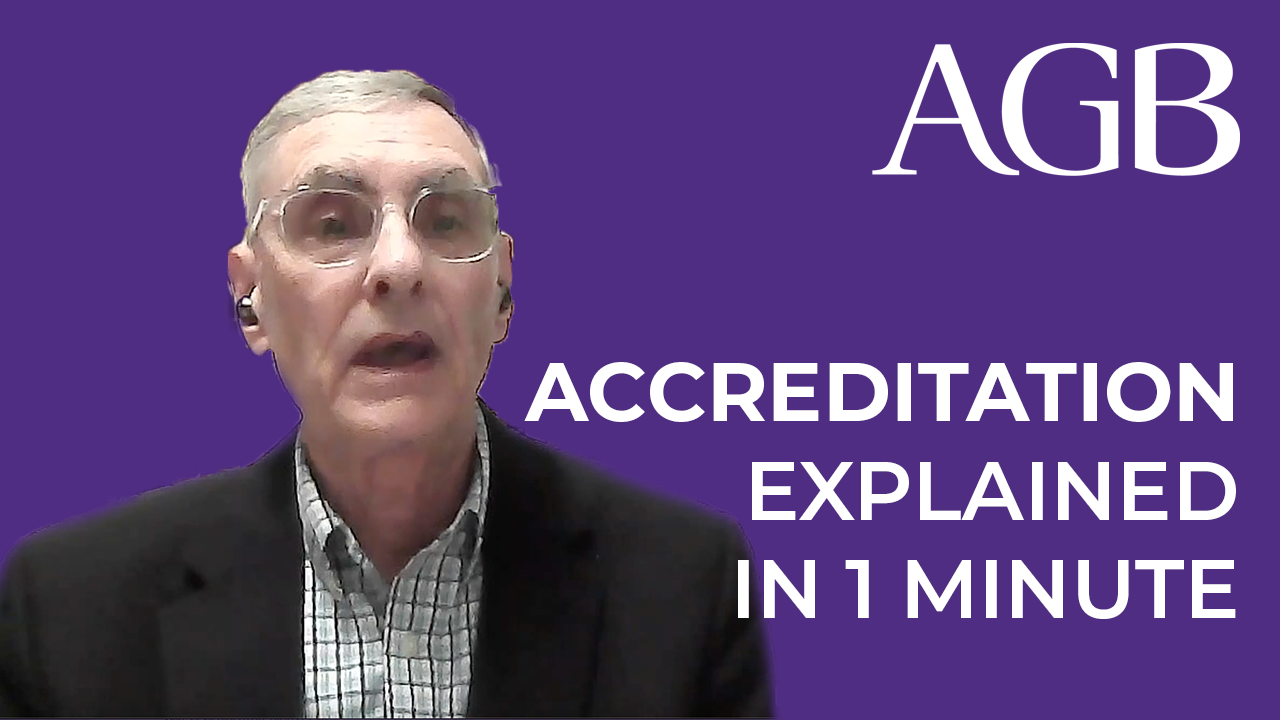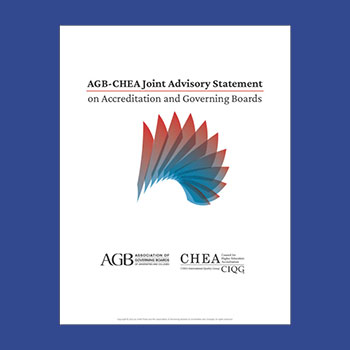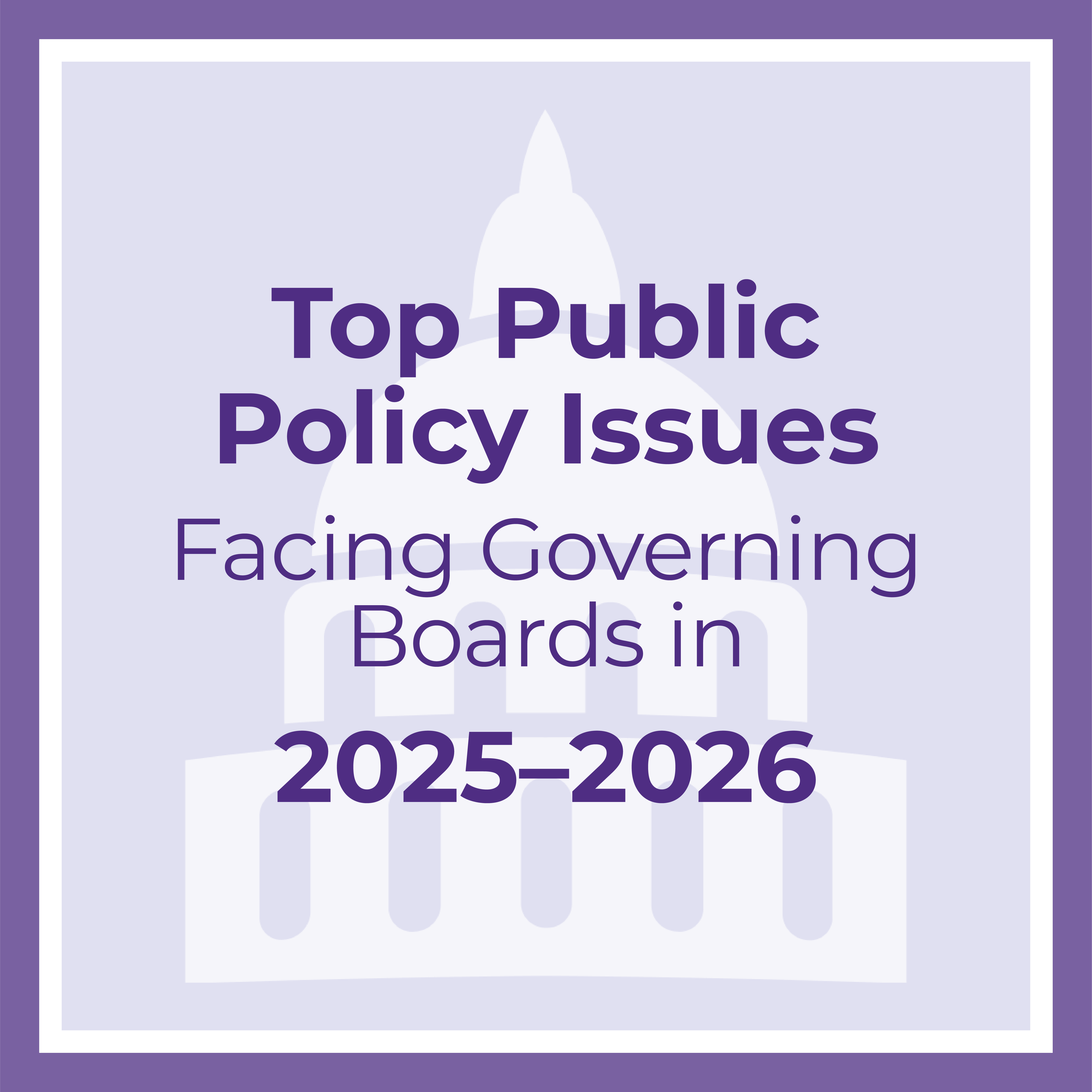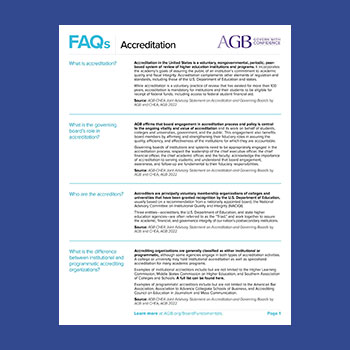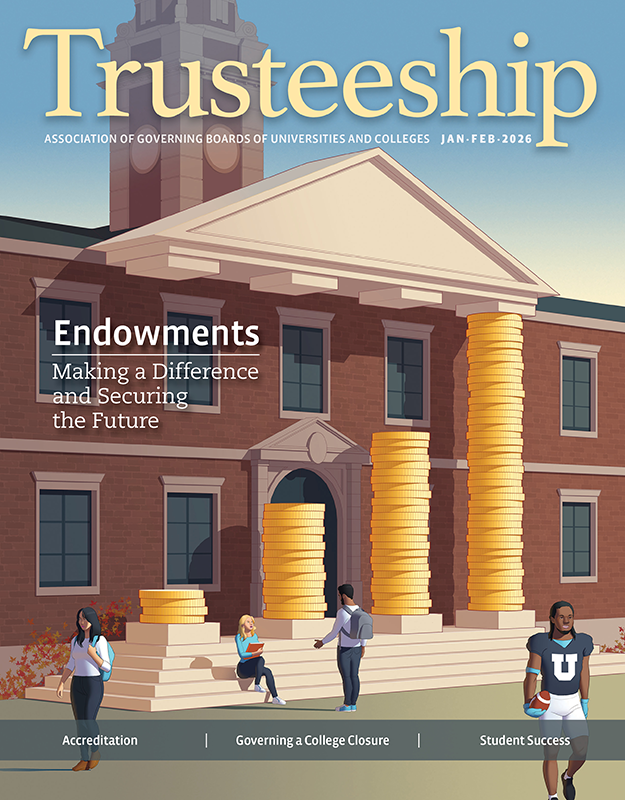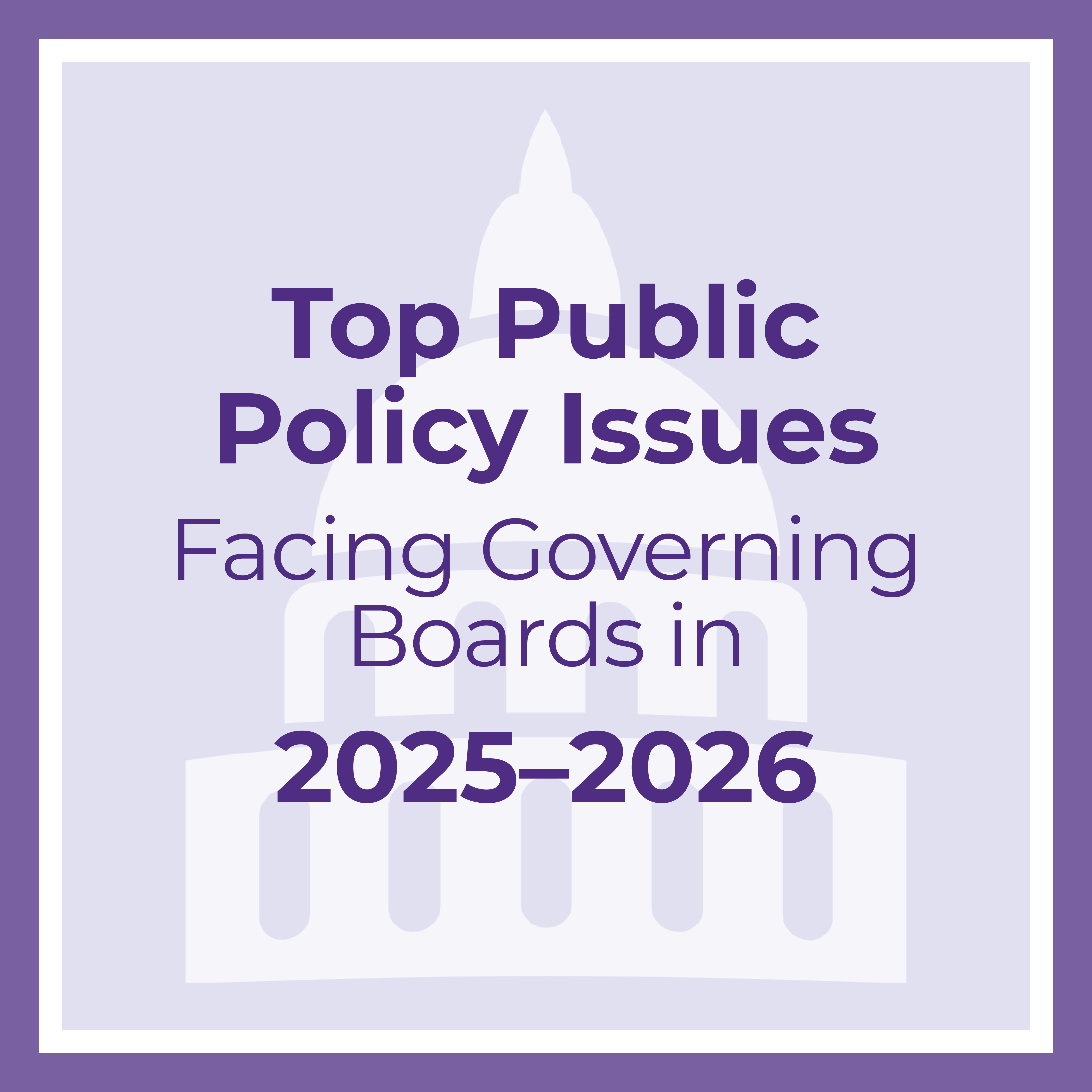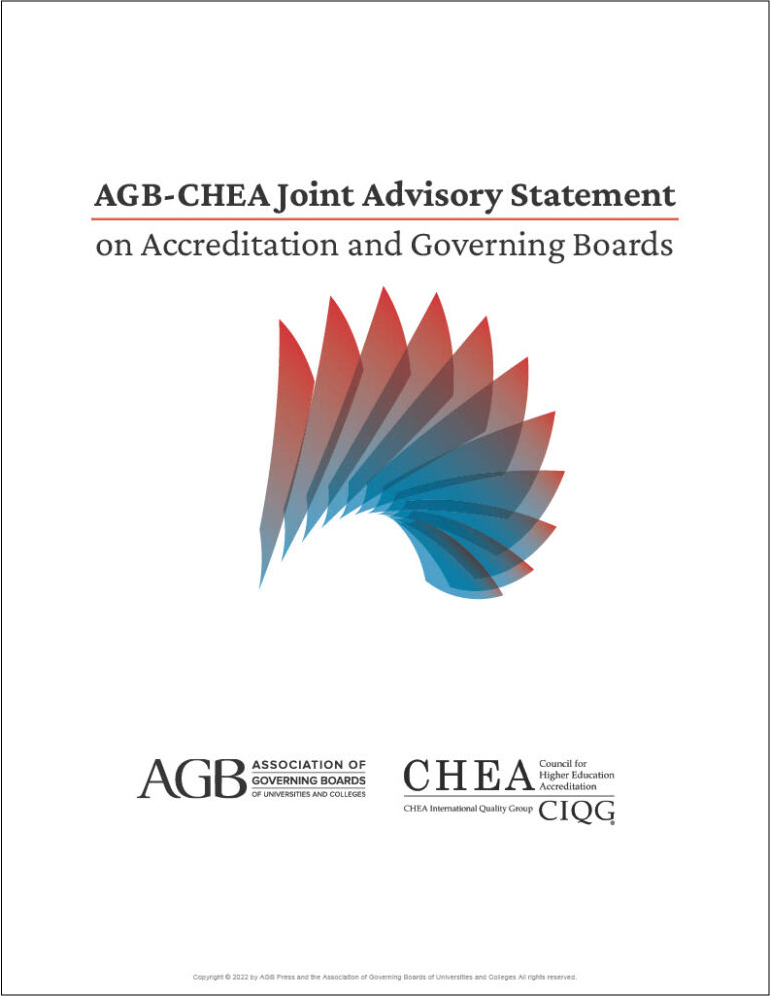Why this is important.
Accreditation is about more than legal compliance—it’s about accountability. Institutional accreditation is a peer-based review of universities’ and colleges’ performance. Higher education institutions undergo this process voluntarily, but federal law requires institutions to be accredited to qualify for student financial aid.
Accreditation builds public trust in an institution by assessing its academic quality, student success, financial sustainability, and commitment to its mission. Programmatic accreditation is a similar process for specific educational programs within a college or university. States and other jurisdictions have licensing requirements for certain professions that require graduates to hold accredited degrees. The process also holds governing boards accountable to their fiduciary responsibilities. Institutional accrediting bodies’ standards for institutional accreditation typically include board independence in governance.
With accreditation norms in the crosshairs of changing U.S. higher education policy, it is more important than ever that boards stay informed and engaged in the accreditation process. Boards should ensure their institutions are prepared by carrying out an independent self-study and incorporating accreditation into strategic planning.
Governance expert John Cavanaugh explains the four main purposes of accreditation. Listen to the full episode of the AGB Trusteeship Podcast.
Questions for boards.
Click below to reveal key questions for your board to consider:
Planning for Self-Study
Consequential Questions:
- What are your accreditor’s standards for board governance? How will the board assess itself and demonstrate continued improvement?
- What is the institution’s plan for self-study?
- Who will lead it? How will board members be involved?
- What’s the timeline?
- Has the institution/system allocated adequate resources to complete the self-study?
Source:
AGB-CHEA Joint Advisory Statement on Accreditation & Governing Boards 2022
Preparing for Accreditation
Consequential Questions:
- In terms of assessing progress, what (if any) issues were raised in the last self-study and accreditation report? Have those issues been fully resolved?
- Where are we in the accreditation cycle? Are there accreditation issues embedded in components of the current strategic plan that require attention before the next accreditation review(s) can begin?
- How will your board’s orientation program for new members include an overview of accreditation processes and the number and types of accreditations held?
Source:
AGB-CHEA Joint Advisory Statement on Accreditation & Governing Boards 2022
Applying Insights from Assessments
Consequential Questions:
- How can accreditation reports aid institutional/system planning efforts?
- How will your board discuss the alignment of educational programs, allocation of resources, and mission?
- How will your board ensure that academic priorities are supported by resource-allocation decisions?
- Are there any concerns about trends in financial sustainability for the institution, and if so, how will this be addressed by the board and administration?
Source:
AGB-CHEA Joint Advisory Statement on Accreditation & Governing Boards 2022
Recommended resources.
We carefully curated these staff-picked resources for you:
The Role of Trustees in Accreditation
Blog Post
Michael F. Middaugh
FAQs: Accreditation
2022
AGB
Accreditation: What Board Members Need to Know
Podcast
Natalie Boehm and John C. Cavanaugh
AGB used AGB Board BotTM in the development of this page to help summarize recommendations from our extensive library of content.


